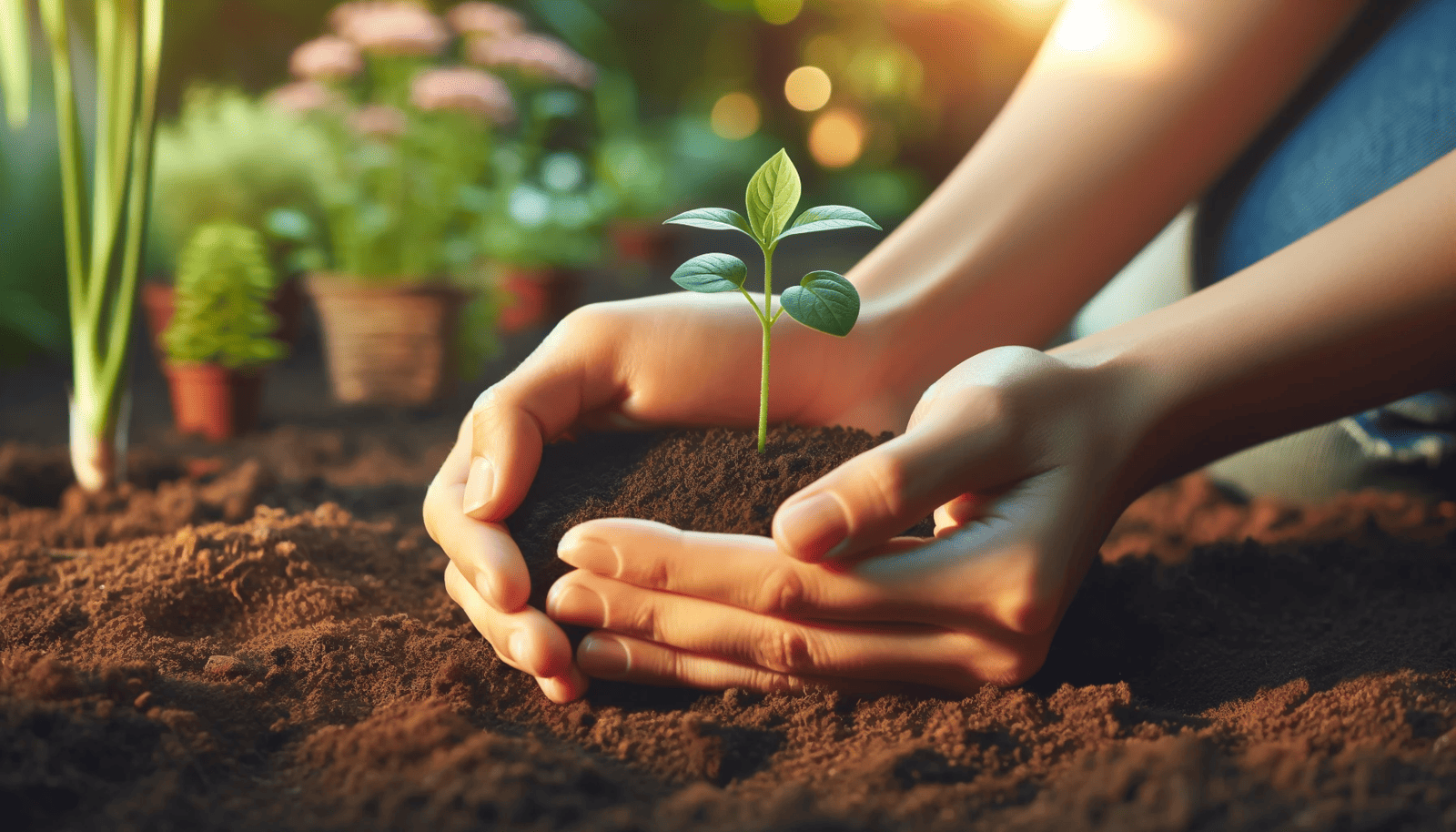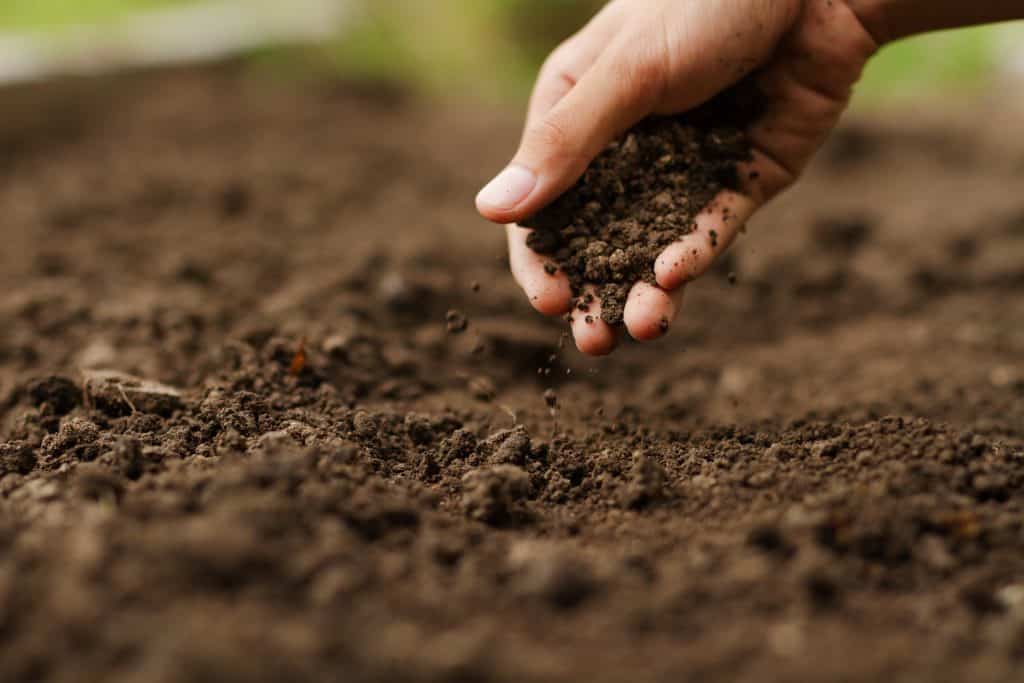Looking for a straightforward way to kickstart your personal growth and grab some life lessons that'll stick? The Thanksgiving season provides us with the time to reflect on the year and what we've learned.
Skip the expensive retreats and step into your backyard! Gardening is your low-key gateway not just to a killer outdoor space but to many valuable life learnings, too.
It's more than just a dirt-digging gig. One of the most important lessons that gardening teaches us is the value of patience. Just like plants take time to grow and blossom, personal growth takes time and effort.

Gardening requires us to be patient and persistent, nurturing our plants and providing them with the care they need to thrive.
This same level of patience and persistence can be applied to our own personal growth journey, reminding us that change doesn't happen overnight and that progress takes time.
So, if you're feeling stuck or discouraged, take a cue from the garden and keep pushing forward!
The Concept of Growth
Gardening is a beautiful way to explore the concept of growth. Whether planting a seed or nurturing a plant, you're witnessing the miracle of life firsthand. It's a powerful reminder that growth takes time and effort.

In the garden, you'll learn that growth is a process that can't be rushed. You can't force a seed to sprout or a plant to produce fruit before it's ready. You must provide the conditions and tools to let nature take its course.
But growth isn't just about physical changes. It's also about personal growth. Gardening can be a powerful tool for self-reflection and self-improvement.
Also, in the garden, you'll learn that growth is not always linear. Sometimes, plants experience setbacks or challenges that slow down their progress.
As you tend to your plants, you'll learn patience, persistence, and resilience. You'll also learn to appreciate the small victories and the beauty of imperfection.
Gratitude and Growth: A Symbiotic Relationship
Gratitude is not only a positive emotion but also a powerful tool for personal growth. When you cultivate gratitude, you create a positive mindset that allows you to focus on the good things in your life.
This mindset can help you develop resilience, reduce stress, and improve your well-being.
Understanding Gratitude
Gratitude is feeling and expressing appreciation for the good things in your life. It is a simple yet powerful practice that can have a profound impact on your mental and physical health.
Research has shown that cultivating gratitude can improve your mood, increase your energy levels, and reduce symptoms of depression and anxiety.
Additionally, practicing gratitude can help you build stronger relationships, enhance your empathy, and increase your overall sense of happiness.
Nurturing Gratitude with Daily Care
Like a gardener who waters and tends to their plants daily, nurturing gratitude requires regular practice. It can be cultivated through reflection, gratitude journaling, or simply by expressing thanks.
This consistent attention helps gratitude to take root sincerely within one's outlook on life.
Weathering Life's Challenges with Gratitude
Gardens face storms and pests, much as people face challenges and stress. The practice of gratitude can be a sturdy shelter, helping to maintain a focus on abundance and resilience during tough times.
It emphasizes the good that persists, even when circumstances are difficult.
Harvesting the Joy from Gratitude
The harvest of a well-tended garden is bountiful and rewarding, paralleling the benefits of a grateful life.
Practicing gratitude can yield increased happiness, stronger relationships, and a more fulfilling life, much like the fruits of a gardener's labor provide nourishment and satisfaction.
Gratitude and Personal Growth
Gratitude and personal growth are intricately linked. When you practice gratitude, you become more aware of the positive things in your life, which can help you develop a growth mindset.
As you get down and dirty with your plants, you're also planting seeds of gratitude and personal growth, which, like your garden, will flourish with a bit of care, patience, and sunny optimism.
So, next time you're out in your garden, remember every weed pulled and every flower blooming is growing you, shaping you, and adding a hearty dose of good to your life.
Lessons from the Garden
If you are looking for inspiration and life lessons, gardening can be a great teacher. Here are a few studies that you can learn from gardening:
Growth Takes Time
Just like plants, personal growth and development take time and patience. You cannot rush the process. It requires consistent effort, care, and attention.
You need to plant the seeds, water them, and provide them with the proper nutrients.
You need to give them time to grow and develop. Similarly, in life, you need to take small daily steps toward your goals, and eventually, you will see the results.
The Importance of Nurturing
Gardening teaches you the importance of nurturing. You cannot just plant the seeds and forget about them. You need to water them, weed them, and protect them from pests and diseases.
You need to give them the right amount of sunlight and shade.
Similarly, in life, you need to nurture your relationships, your health, and your personal growth. You need to invest time and effort into them and care for them.
Weathering the Storms
Gardening teaches you to weather the storms.
You cannot control the weather, but you can prepare for it. It would be best if you protect your plants from harsh weather conditions, such as strong winds, heavy rains, or extreme temperatures.
In reality, you need to be prepared for the challenges that come your way.
Final Thoughts
Gardening requires a lot of physical labor, but the rewards are worth it. When you put in the effort, you are more likely to achieve your goals and find success.
The garden is a place of growth, learning, and gratitude. As you take the lessons you learn in the garden and apply them to your life, you can create a fulfilling and meaningful existence one sprout at a time.
How about you? What's the most valuable lesson you learned in the garden? Comment below!
